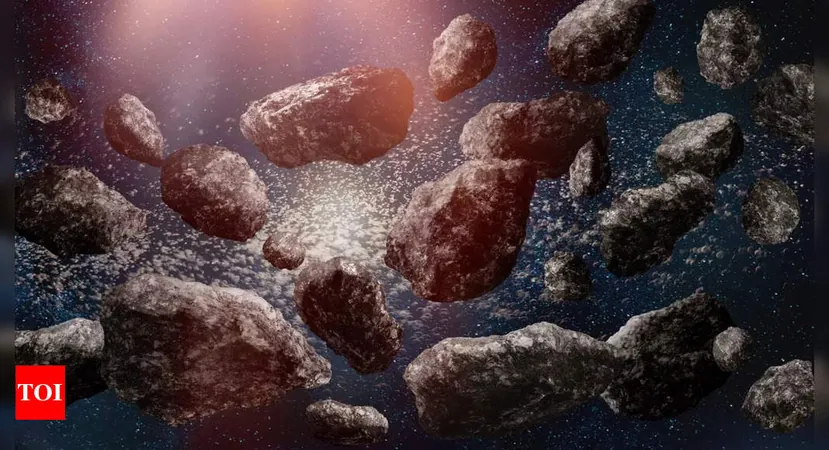
Asteroids: The Surprising New Superfood for Astronauts?
2024-10-10
Author: Sarah
Asteroids: More Than Just Floating Rocks
The core concept of this research is not to munch on asteroids but rather to extract their carbon content and convert it into nutritious food. The approach specifically addresses the significant logistical issues of transporting sufficient food supplies and the complications associated with growing crops in the harsh conditions of space.
Joshua Pearce, an engineering professor at Western University, shared insights with The New York Times, likening the interaction of microbes with asteroids to that of plastics. This comparison opens up intriguing possibilities for producing food through microbial processes, potentially revolutionizing astronaut nutrition.
From Waste to Food: A New Culinary Frontier
This scientific inquiry draws inspiration from a successful U.S. Department of Defense project that turned plastic waste into edible substances using a method known as pyrolysis. This technique breaks down plastics into oils that bacteria can then ferment into nutrient-rich organic matter. Such microbial versatility highlights the potential for transforming a wide array of materials into food, which could redefine space diets.
Microbes: Nature’s Culinary Artists
Recent studies led by Annemiek Waajen from Vrije Universiteit Amsterdam reveal that certain microbes thrive on meteorite materials, suggesting that using carbon from asteroids could indeed be a sustainable food production method for astronauts. Notably, research on the carbon-rich asteroid Bennu indicates that resources from this celestial body could sustain astronauts for up to 600 years, even with minimal processing.
Navigating Safety Concerns
Despite the exciting prospects, the pathway to utilizing asteroid-derived food isn’t without its challenges. Safety remains a paramount concern, as the organic matter produced from asteroid materials must undergo rigorous toxicity testing before it can be deemed safe for human consumption. As Waajen cautioned, "It's still a long way off," underlining the necessity for further extensive research.
The Future of Space Nutrition: What Lies Ahead?
The exploration of converting asteroidal materials into food marks a significant advancement in meeting the nutritional needs of astronauts during extended space missions. Continued research and development are crucial to refining this process and addressing safety concerns, paving the way for a future where space travelers can enjoy a diverse menu, perhaps featuring dishes crafted from cosmic components.
Stay tuned as this fascinating field of study evolves, potentially transforming the way humanity feeds its explorers among the stars. The question remains: will we see space cuisine inspired by asteroids on our dinner plates in the near future? Only time will tell!


 Brasil (PT)
Brasil (PT)
 Canada (EN)
Canada (EN)
 Chile (ES)
Chile (ES)
 España (ES)
España (ES)
 France (FR)
France (FR)
 Hong Kong (EN)
Hong Kong (EN)
 Italia (IT)
Italia (IT)
 日本 (JA)
日本 (JA)
 Magyarország (HU)
Magyarország (HU)
 Norge (NO)
Norge (NO)
 Polska (PL)
Polska (PL)
 Schweiz (DE)
Schweiz (DE)
 Singapore (EN)
Singapore (EN)
 Sverige (SV)
Sverige (SV)
 Suomi (FI)
Suomi (FI)
 Türkiye (TR)
Türkiye (TR)